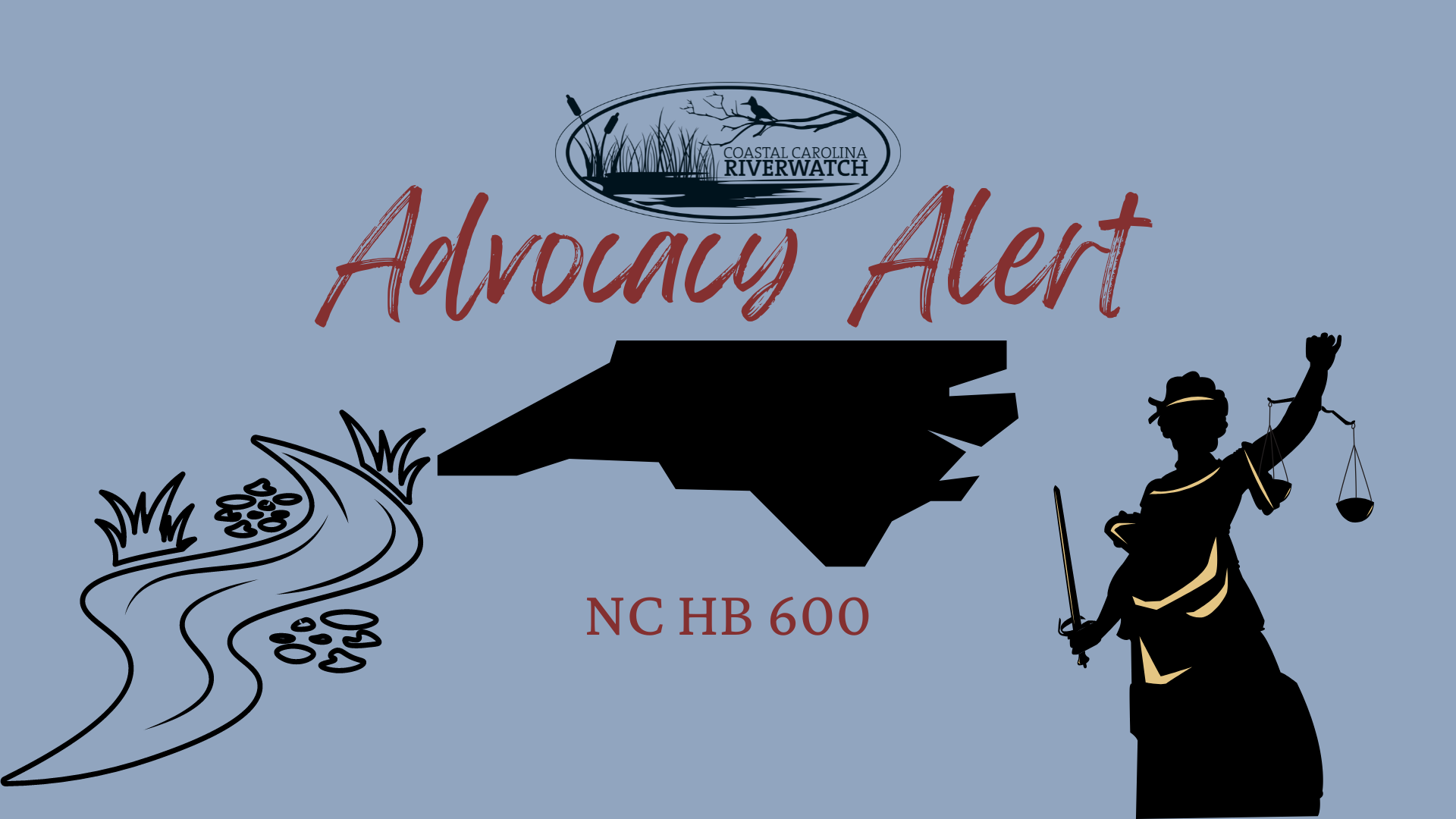House Bill 600, the Regulatory Reform Act of 2023, currently making its way through the North Carolina General Assembly, rolls back environmental protections for everyone in NC, but coastal communities will once again get the brunt of the burden.
HB600 is moving forward in the N.C. Senate in the coming days, and it’s up to us to let people — and our legislators — know the bill poses major concerns for North Carolinians.
One section of the bill (Section 7.1) sets time limits for the North Carolina Department of Environmental Quality to review and judge water-quality certification applications. On the surface, this may seem harmless, but these are strict deadlines, and if they are not met, the permits issued may be disastrous for our local community environment and local economy – including fisheries and tourism.
The Division of Water Resources staff will have 30 days to determine whether a water-quality application is complete; 60 days to approve or deny it. These permits require science and engineering analysis that doesn’t happen in the proscribed timeline. If the first deadline isn’t met, there are consequences: the application will just be considered “completed,” even if it’s deeply flawed; if the second deadline isn’t met, the permit will be approved, essentially giving a green light to some entities to pollute as much as they like, with no consequences.
Since the General Assembly has underfunded the NCDEQ for years — currently, 25% of positions at DEQ are vacant — staff has been hard pressed to do their jobs even without the proposed new deadlines.
Another section (Section 12) of the Regulatory Reform bill limits the criteria NCDEQ can consider for animal waste permits, and limits the agency’s ability to deny or add conditions to a permit. What this language intends to circumvent Title VI of the federal civil rights law, which would prevent DEQ from denying a permit for a hog-waste lagoon based on how much it impacts a predominantly nonwhite and/or low-income community, even if that community is already disproportionately burdened by multiple pollution sources, further compounding environmental injustices in NC.
Lastly, section 11 of the bill will stop a current science-based process that is trying to determine how much nutrient pollution from wastewater discharges in local waters is negatively impacting the estuary; and the likely scenario is much more nutrient pollution is impacting our estuary than previously estimated. The legislature should remove this section and allow science to lead policy decisions for the White Oak River Basin.
“Now, more than ever, we need water quality scientists involved in the decision making process. When you don’t include experts and those impacted in the process, bad decisions are made and HB600 is a bad decision.”
– Lisa Rider, Executive Director

